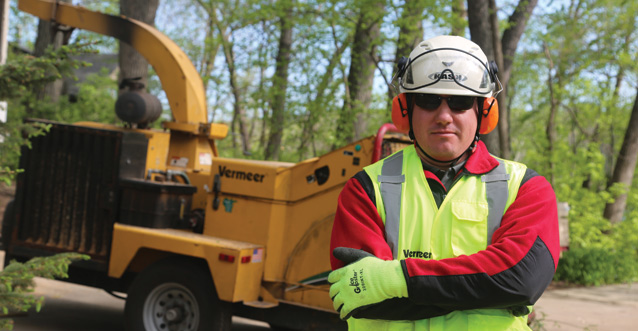A business plan is the roadmap to your business’ success. It outlines your goals and details how you plan to achieve those goals. If you’ve ever jotted down a business idea on a sticky note along with a few tasks, you’ve essentially written a very basic business plan.
“When you’re getting started, it’s key to have a business plan,” said Bob Rouse, chief program officer of the Tree Care Industry Association (TCIA). “This tool serves three basic purposes: communication, management and planning.”
A formal business plan can be essential if you’re looking for financing (e.g., a bank loan, an outside investor, etc.). In these cases, you will want a fairly detailed plan with a five-year forecast which includes goals, risk factors, use of proceeds, and prior and projected financial statements.
“As a communication tool, it’s used to attract investment capital, secure loans, hire workers and assist in attracting strategic business partners,” Rouse said. “As a management tool, it helps you monitor and evaluate your progress. As a planning tool, it guides you through all the phases of your business.”
Perhaps your business is already established, or you’re all set with funding. In that case, your business plan can be as simple as a few bullet points to help focus your strategy, track tasks and responsibilities, and outline the basic financial projections you need to plan cash flow and budget expenses.
Find the time
“Despite its importance, we often hear of many tree care company owners who don’t have a business plan,” Rouse said. “They say that the marketplace moves too quickly or that they don’t have the time to invest into this project. But just as a builder wouldn’t begin construction without a blueprint, tree care companies shouldn’t get started without a business plan.”
A business plan will be particularly handy when you are on the fence regarding a certain aspect of your business. For instance, maybe you can’t decide between two pieces of equipment — your plan can help you eliminate the gray area as you write specific information down in black and white.
“TCIA has created a number of tools that help with business planning,” Rouse said. “For example, our Business Management Guide is an extensive document that walks you through virtually every step of planning your business. In fact, it also has templates and workbook pages that essentially give you everything you need to get started.”
A much-needed reality check
Rouse also stressed that a business plan can serve as a reality check of sorts. While many small business owners don’t want to hear, let alone consider, that their business idea may be a bit flawed, writing the plan can help fill in the gaps before real financial problems begin.
“The TCIA website has a great analysis worksheet that walks you through the development of a SWOT (Strengths, Weaknesses, Opportunities and Threats) analysis for your company,” Rouse said. “This tool and others are available for members only on TCIA.org.”
A SWOT analysis is also great for discovering new ideas, different approaches and fresh perspectives. Using this tool will help you create a flexible and dynamic business plan to think creatively and come up with new solutions for some of your toughest challenges.
TCIA accreditation
Rouse also suggests the TCIA Accreditation program to help tree care professionals looking to grow and improve their business.
“This program is great to explore if your company is looking to grow, improve processes or to become better organized,” Rouse said. “Accreditation provides virtually everything you will need for success – policy templates to help employees perform better, documented safety and training programs, plans to help develop customer satisfaction practices and more.”
A plan to consider
So, do you really need a business plan? We say yes. Use your business plan as a tool to help you outline action items, next steps, future activities and equipment purchases. By creating a living, breathing document that outlines where you are and where you want to be, you’ll find the directions you need to get there.
Visit the Tree Care Industry Association website for membership and business resource information.
For more tips and trends in starting your own tree care business, view more articles on the Tree care, rental and landscape blog.
This article was contributed by Tree Care Industry Association (TCIA).
Vermeer, the Vermeer logo and Equipped to Do More are trademarks of Vermeer Manufacturing Company in the U.S. and/or other countries. © 2017 Vermeer Corporation. All Rights Reserved.
